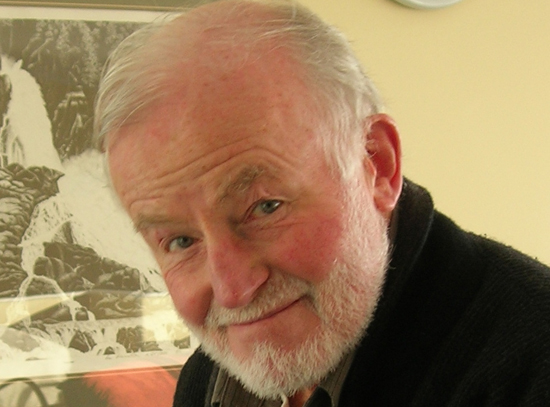
Carol Archie profiles a gentle, but feisty, priest who campaigned for Pacific people and human rights:
Father Terence Montague Dibble, 16 February 1933-24 April 2011.
OBITUARY: Pacific people were among hundreds of mourners who packed St Patrick’s Cathedral in Auckland on Wednesday to honour a gentle but feisty man who served as a priest for more than 50 years.
Terence Dibble, 78, or "Terry", as everyone knew him, advocated for Pacific people as part of a large number of social justice issues he was involved in.
As a member of the Timor Lorosae Support Group, he worked towards independence for East Timor. Terry was involved in many projects to relieve poverty there.
The group took a herd of 50 cattle to East Timor to enhance the local breed of cattle. They sent four container loads of water pumps. Another project provided sewing machines and start-up funds for widows to create work such as weaving to support their families.
A recent initiative he worked on was providing resources for more than 100 children at Topu Honis Orphanage. Most of the children are not orphans but have nowhere else to go because their families cannot support them.
In support of a nuclear-free Pacific, he joined the Peace Squadron flotilla of small boats in protests against nuclear warships in Waitemata Harbour. Terry had a great love of sailing and was a part-owner and skipper of the trimaran, Moananui.
He was also a member of the Philippines Solidarity Network of Aotearoa/NZ which speaks out on issues such as human rights abuses.
Pacific backgrounds
Terry celebrated Mass for prisoners at the Auckland Regional Remand Prison on a regular basis and many of the men he saw there were from Pacific backgrounds.
Young Pacific men were helped through his long involvement with Betty Wark and Ngati Arohanui Trust. Betty Wark worked with disadvantaged Maori youth, especially street kids, who needed a supportive environment and a chance to get on their feet. The trust often included young Pakeha and Pacific youth.
Before he died, Terry helped to set up a new organisation called the Mana Pride Trust, with the help of some leading lawyers and judges in Auckland, to carry on this work. It was one of his greatest passions even in the final weeks of his life. He hoped the trust would help young people coming out of jail to find their own worth, gain skills for employment and re-establish themselves in society.
Terry was a member of a formidable number of organisations including Corso, CARE, HART, the Manurewa Food Coop, Otara Labour Coop, Ponsonby Work Trust, Kauri Trust, Tenants Protection Association and the Peoples’ Centre Trust.
He is often remembered for the way he negotiated with the Police Commissioner, Bob Walton, at Hamilton in 1981 when the Springbok game was disrupted by protesters. Many of the protesters believe they escaped serious injury, or even death, at the hands of angry rugby supporters because of Terry’s intervention on that day to help protesters to leave the field in relative safety.
He worked closely with the Hawke whanau in their claim to the Waitangi Tribunal for return of land at Takaparawha for Ngati Whatua o Orakei.
This tireless fighter for justice was arrested and charged at Waitangi in 1982 for disrupting an official church service by asking people “to pray for the indigenous people of New Zealand”. He defended the charge and it was dismissed.
When people came together at St Paul’s in Grey Lynn two days before Terry’s funeral to reflect on all that he had done, it was the "little" things about him that resonated most strongly with his friends and others who knew him.
John Minto, who could have talked about his long association with Terry through their anti-apartheid activities, instead mentioned a “small” thing that meant a great deal. When his family lost a beloved cat of about 20 years, Terry came to their home and blessed the grave.
At his funeral, Father Terence Dibble was greeted on arrival at the cathedral by the sounds of conch, karanga and haka performed by members of Ngati Whatua o Orakei. The mourners were invited at the end of the service to stand and show their appreciation for the life of this much-loved priest.
They stood for a sustained period of enthusiastic applause.
Carol Archie is author of Pou Kōrero: A Journalists' Guide to Māori and Current Affairs and Skin to Skin: Intimate true stories of Māori-Pakeha intermarriage.



